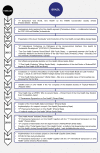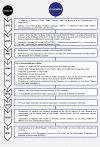From the Approach to the Concept: One Health in Latin America-Experiences and Perspectives in Brazil, Chile, and Colombia
- PMID: 34631640
- PMCID: PMC8496448
- DOI: 10.3389/fpubh.2021.687110
From the Approach to the Concept: One Health in Latin America-Experiences and Perspectives in Brazil, Chile, and Colombia
Abstract
Professionals throughout the world have been working to assess the interdisciplinary interaction and interdependence between health and wellbeing in a constantly changing environment. The One Health concept was developed to encourage sustainable collaborative partnerships and to promote optimal health for people, animals, plants, the environment, and the whole planet. The dissemination of scientific discoveries and policies, by working directly with diverse communities, has been one of the main goals for Global One Health. The One Health concept has also been referred or related to as "One Medicine, One Medicine-One Health, One World-One Health, EcoHealth," and Planetary Health," depending on each fundamental view and approach. In Latin America, despite the concept still being discussed among health professionals and educators, several One Health initiatives have been used daily for more than decades. One Health action has been applied especially in rural and underserved urban areas where low socioeconomic status, lack of health professionals, and scarcity of medical resources may require professionals to work together. Local communities from diverse social and economic statuses, including indigenous populations have been working with institutions and social organizations for many years, accomplishing results through grassroots movements. These "bottom-up" socio-community approaches have also been tools for the prevention and control of diseases, such practice has preceded the One Health concepts in Latin American countries. It is strongly believed that collaborative, multidisciplinary, political, and economic initiatives with prosocial focus may become investments toward obtaining significant results in the face of global, economic and health challenges; working for a healthier world with inclusivity, equity, and equality. In this study, it is briefly presented how the One Health approach has been initiated and developed in Latin America, highlighting the events and actions taken in Brazil, Chile, and Colombia.
Keywords: ecohealth; indigenous population; latin america; one health; planetary health; salud unica; saúde única; une seule santé.
Copyright © 2021 Pettan-Brewer, Martins, Abreu, Brandão, Barbosa, Figueroa, Cediel, Kahn, Brandespim, Velásquez, Carvalho, Takayanagui, Galhardo, Maia-Filho, Pimpão, Vicente and Biondo.
Conflict of interest statement
The authors declare that the research was conducted in the absence of any commercial or financial relationships that could be construed as a potential conflict of interest.
Figures




Similar articles
-
A Survey on One Health Approach in Colombia and Some Latin American Countries: From a Fragmented Health Organization to an Integrated Health Response to Global Challenges.Front Public Health. 2021 Oct 25;9:649240. doi: 10.3389/fpubh.2021.649240. eCollection 2021. Front Public Health. 2021. PMID: 34760857 Free PMC article.
-
[Toward a model of communications in public health in Latin America and the Caribbean].Rev Panam Salud Publica. 2005 Dec;18(6):427-38. doi: 10.1590/s1020-49892005001000006. Rev Panam Salud Publica. 2005. PMID: 16536929 Review. Spanish.
-
[Primary health care reforms in Latin America: advances in Brazil, Chile, Colombia, Mexico and Peru].Gac Sanit. 2024;38:102430. doi: 10.1016/j.gaceta.2024.102430. Epub 2024 Nov 19. Gac Sanit. 2024. PMID: 39566275 Spanish.
-
[In the America of mountain ranges, the brief summer of Indian agrarian movements (1970-1991)].Tiers Monde. 1991 Oct-Dec;32(128):831-49. Tiers Monde. 1991. PMID: 12317604 French.
-
Occupational therapy in Latin America: Conceptual discussions on territory and community.Scand J Occup Ther. 2022 Apr;29(3):210-228. doi: 10.1080/11038128.2020.1842492. Epub 2020 Nov 5. Scand J Occup Ther. 2022. PMID: 33153351 Review.
Cited by
-
A Survey on One Health Approach in Colombia and Some Latin American Countries: From a Fragmented Health Organization to an Integrated Health Response to Global Challenges.Front Public Health. 2021 Oct 25;9:649240. doi: 10.3389/fpubh.2021.649240. eCollection 2021. Front Public Health. 2021. PMID: 34760857 Free PMC article.
-
Strengthening one health in the future of the Caribbean through a regional community of practice.One Health. 2025 Jul 28;21:101152. doi: 10.1016/j.onehlt.2025.101152. eCollection 2025 Dec. One Health. 2025. PMID: 40808751 Free PMC article.
-
Peace and health: exploring the nexus in the Americas.BMJ Glob Health. 2022 Oct;7(Suppl 8):e009402. doi: 10.1136/bmjgh-2022-009402. BMJ Glob Health. 2022. PMID: 36210066 Free PMC article.
-
Rabies outbreak in Brazil: first case series in children from an indigenous village.Infect Dis Poverty. 2023 Aug 24;12(1):78. doi: 10.1186/s40249-023-01130-y. Infect Dis Poverty. 2023. PMID: 37620861 Free PMC article.
-
One Health Approach in Serosurvey of Toxoplasma gondii in Former Black Slave (Quilombola) Communities in Southern Brazil and Among Their Dogs.Trop Med Infect Dis. 2023 Jul 24;8(7):377. doi: 10.3390/tropicalmed8070377. Trop Med Infect Dis. 2023. PMID: 37505673 Free PMC article.
References
-
- Bresalier M, Cassidy A, Woods A. One health in history. In: One Health: The Theory and Practice of Integrated Health Approaches, eds Zinsstag J, Schelling E, Whittaker M, Tanner M, Waltner-Toews D. (1st ed. Oxfordshire, CAB International; ). (2015). p. 1–14.
-
- Wilkinson L. Animals and Disease: An Introduction to the History of Comparative Medicine. Cambridge University Press. (1992)
-
- American Veterinary Medical Association . One Health: A New Professional Imperative. (2008) Available online at: https://www.avma.org/sites/default/files/resources/onehealth_final.pdf
Publication types
MeSH terms
LinkOut - more resources
Full Text Sources

